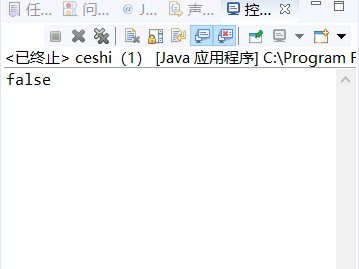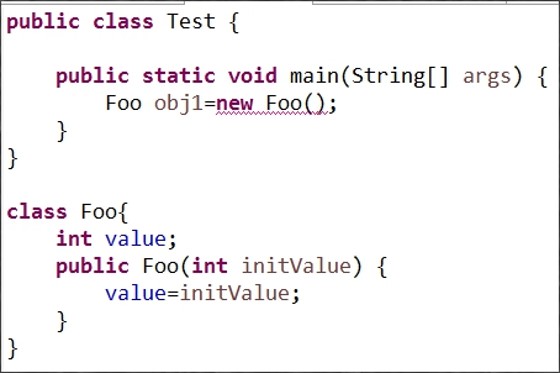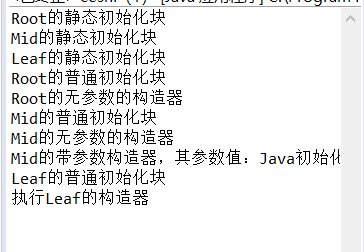1,运行以下代码,得出结果
public class ceshi { public static void main(String[]args) { Foo obj1=new Foo(); Foo obj2=new Foo(); System.out.println(obj1==obj2); } } class Foo{ int value=100; }

该等号比较的并不是两变量值,而是两变量的地址,所以得不出正确的结果。
2 运行以下代码,请问错误原因

我们易得,该类已经进行了初始化,在主函数中再进行初始化所以会进行报错。
3,类的初始化规则
当出现定义初始化,初始化模块,初始化类时,一切以顺序为准,即谁最后初始化,谁做主,
即覆盖准则。
4
package teacher; class Root { static{ System.out.println("Root的静态初始化块"); } { System.out.println("Root的普通初始化块"); } public Root() { System.out.println("Root的无参数的构造器"); } } class Mid extends Root { static{ System.out.println("Mid的静态初始化块"); } { System.out.println("Mid的普通初始化块"); } public Mid() { System.out.println("Mid的无参数的构造器"); } public Mid(String msg) { //通过this调用同一类中重载的构造器 this(); System.out.println("Mid的带参数构造器,其参数值:" + msg); } } class Leaf extends Mid { static{ System.out.println("Leaf的静态初始化块"); } { System.out.println("Leaf的普通初始化块"); } public Leaf() { //通过super调用父类中有一个字符串参数的构造器 super("Java初始化顺序演示"); System.out.println("执行Leaf的构造器"); } } public class ceshi { public static void main(String[] args) { new Leaf(); } }
运行结果如下
